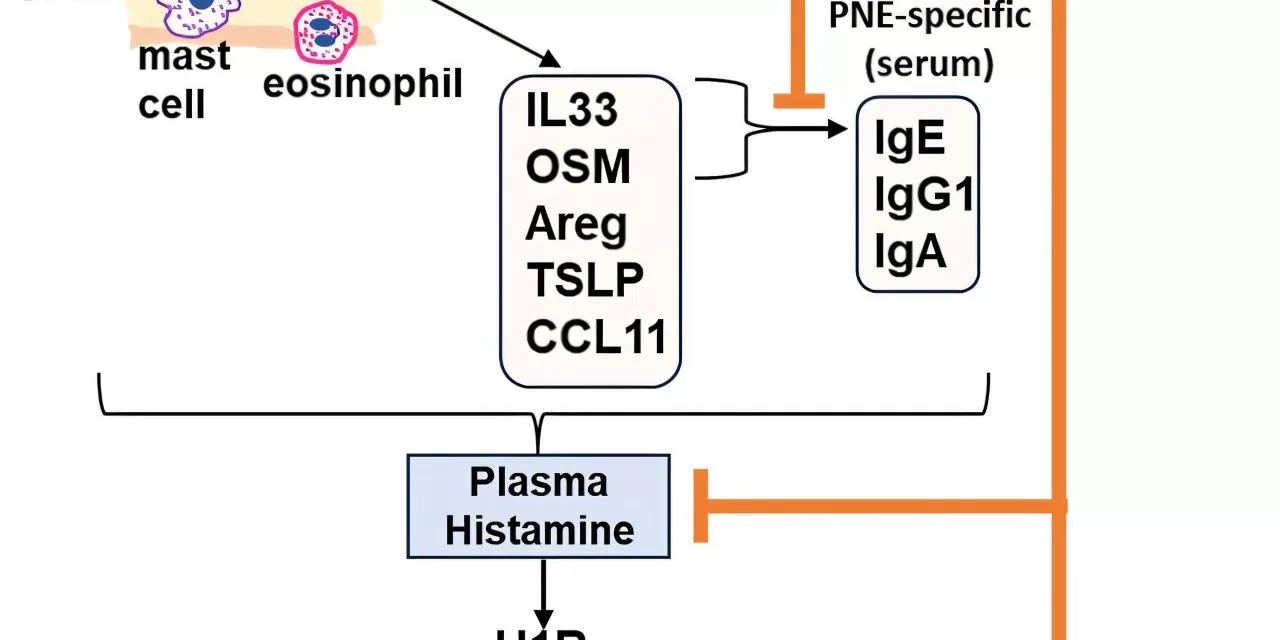A new study published in The Journal of Immunology suggests that supplementing the maternal diet with α-tocopherol, a form of vitamin E, may reduce the risk of food allergies, including peanut allergies, in newborns. The research, conducted on mice, found that offspring of mothers who consumed α-tocopherol during pregnancy and lactation showed decreased allergic responses.
Rising Food Allergies in Children
The prevalence of food allergies in children has surged in recent years, with a 50% increase from 2007 to 2021 in the United States. The incidence of peanut allergies has tripled in the same period, raising concerns among medical professionals and researchers. This new study highlights the potential role of α-tocopherol in prenatal vitamins to mitigate these risks.
Findings from the Study
Researchers conducted the study using a mouse model to simulate conditions contributing to allergy development in infants. They focused on pups predisposed to eczema and food allergies, given that children with eczema often have a higher risk of developing peanut allergies. The study found that:
- Pups born to α-tocopherol-supplemented mothers had reduced IgE antibodies to food allergens.
- These pups exhibited a lower incidence of peanut-induced anaphylaxis.
- Increased levels of α-tocopherol in the offspring correlated with improved allergy resistance.
The methodology involved exposing mouse pups to allergens through skin contact and environmental factors such as household dust and detergents. Later, they were orally exposed to allergens to test their immune response. The results showed a notable decrease in allergic reactions in pups whose mothers had taken α-tocopherol.
Challenges and Considerations
Despite the promising findings, Dr. Joan Cook-Mills, Professor of Microbiology and Immunology at Indiana University School of Medicine and lead researcher of the study, pointed out potential limitations in applying these results to humans. She noted that the high prevalence of γ-tocopherol, another form of vitamin E found in common U.S. cooking oils (such as soybean, corn, and canola oil), could counteract the benefits of α-tocopherol.
In contrast, European countries, where cooking oils like sunflower, safflower, and olive oil contain higher levels of α-tocopherol and lower levels of γ-tocopherol, may see more pronounced benefits. Dr. Cook-Mills emphasized the need for commercial food producers to modify the balance of tocopherols in cooking oils to enhance the effectiveness of α-tocopherol supplementation in the U.S.
Implications for Allergy Prevention
Current guidelines recommend introducing peanuts to children at an earlier age to help prevent allergies. However, some infants already develop peanut allergies before solid food introduction, underscoring the need for alternative preventative measures. This study suggests that maternal supplementation with α-tocopherol could be one such approach.
Conclusion and Future Research
While the findings offer a potential breakthrough in allergy prevention, further research is needed to determine if similar effects occur in human populations. Researchers hope to collaborate with food industry partners to adjust tocopherol levels in everyday food products, making α-tocopherol supplementation a viable option for expectant mothers.
Disclaimer
This article is for informational purposes only and does not constitute medical advice. Pregnant individuals should consult a healthcare provider before making any changes to their diet or supplement intake.
Reference: Allison E. Kosins et al., Maternal supplementation with α-tocopherol inhibits the development of offspring food allergy, H1R signaling and ultimately anaphylaxis early in life, The Journal of Immunology (2025). DOI: 10.1093/jimmun/vkae041












